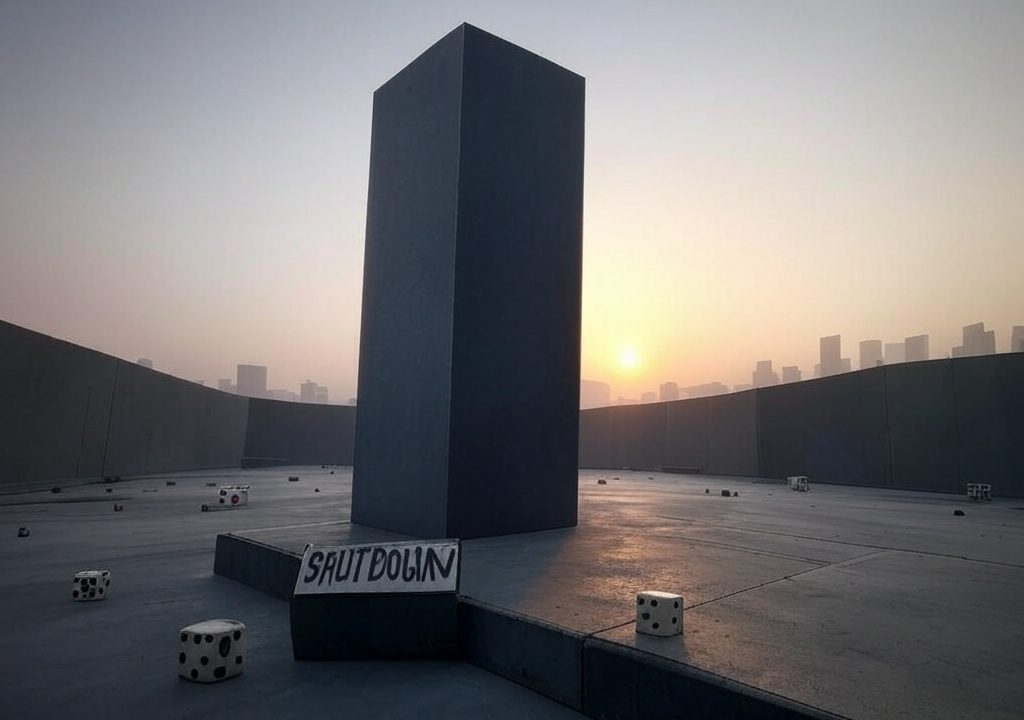The recent announcement regarding the closure of Monolith Productions has sent shockwaves through the gaming community. More than 100 employees, many of whom have dedicated decades to the craft, are now left without jobs. Monolith Productions, known for its innovative contributions to the gaming world, was not always a subsidiary of Warner Bros. Games. The studio developed numerous intellectual properties (IPs) both before and during its tenure with the media giant. Among its most notable titles are the critically acclaimed FEAR series and Middle-earth: Shadow of Mordor. However, the studio also brought to life lesser-known gems like Shogo: Mobile Armor Division, Tron 2.0, and No One Lives Forever.
The recent closure coincides with the cancellation of a highly anticipated Wonder Woman game, which had been in development since its reveal in 2022. Sadly, it appears that much of the creative work and effort put into this project will never see the light of day. The decision to close Monolith Productions and cancel the Wonder Woman game raises uncomfortable questions about corporate strategy and the value placed on creative endeavors in the gaming industry.
Monolith Productions has been a significant player in the gaming industry for over three decades, having been founded in 1994. Initially focused on PC gaming, the studio transitioned to console titles after joining Warner Bros. Games in 2004. During its early years, Monolith produced several notable titles, including the first-person shooter series Blood and the humorous strategy game Gruntz. However, it was The Operative: No One Lives Forever, released in 2000, that truly captured the attention of PC gamers. The game, along with its sequel No One Lives Forever 2: A Spy in HARM’s Way, offered a unique blend of sharp wit and engaging gameplay, showcasing a strong female protagonist in a landscape that was still heavily male-dominated.
The studio’s innovations extended beyond just game design. Monolith Productions developed the LithTech engine, which played a crucial role in gaming development during its time. The engine incorporated Microsoft’s DirectX, which was revolutionary in its day. The final iteration, LithTech Firebird, was instrumental in powering modern titles like Middle-earth: Shadow of Mordor. This engine facilitated complex game mechanics, including large-scale battles that players witnessed in the Middle-earth series.
Perhaps Monolith’s most significant contribution to gaming was the creation of the Nemesis system, which fundamentally altered how players interacted with NPCs (non-player characters). This system tracked Uruk enemies, promoting them based on their experiences and interactions with the player. The Nemesis system created a living, breathing world that evolved based on player choices, ensuring that no two gaming experiences were the same. Rumors suggested that this innovative system was set to be employed in the now-canceled Wonder Woman game, making its cancellation even more disheartening.
The closure of Monolith Productions is a significant loss not only for its employees but also for the gaming industry at large. In a statement provided to Kotaku, WB Games explained the rationale behind the decision, stating, “We have had to make some very difficult decisions to structure our development studios and investments around building the best games possible with our key franchises – Harry Potter, Mortal Kombat, DC and Game of Thrones.” This statement suggests a strategic pivot that prioritizes a select few franchises over the rich potential of others, such as The Lord of the Rings.
The implications of this decision are far-reaching. Monolith Productions has fostered a culture of creativity and innovation for years. The loss of such a studio means that many beloved franchises, including Middle-earth and No One Lives Forever, may never be revived. Moreover, the cancellation of the Wonder Woman game raises concerns about the future of female-led narratives in gaming. With Wonder Woman being one of DC’s most iconic characters, the decision to abandon her game is puzzling and disheartening.
The closure of Monolith Productions casts a shadow over the future of gaming IPs and innovation. The studio’s unique approach to game design and storytelling has influenced many other developers in the industry. While some companies, like Ubisoft, have made attempts to replicate elements of the Nemesis system in their own titles, none have matched the original’s depth and complexity. Until WB Games relinquishes the patent on the Nemesis system, the potential for further innovation in this area remains stifled.
Additionally, the closure raises questions about the sustainability of creative studios within larger corporate structures. As gaming companies increasingly prioritize high-revenue franchises, there is a risk that unique and diverse narratives may be sacrificed in favor of established IPs. The gaming landscape thrives on innovation and fresh ideas, and the loss of studios like Monolith Productions diminishes the chances of discovering new and exciting narratives.
In conclusion, the closure of Monolith Productions marks a significant and unfortunate chapter in the gaming industry. The loss of over 100 talented individuals, coupled with the cancellation of highly anticipated projects like the Wonder Woman game, signals a troubling trend within corporate gaming structures. While Warner Bros. Games may have made a strategic decision focused on a few key franchises, the long-term consequences of this decision could hinder the industry’s growth and creativity.
As we reflect on Monolith Productions’ legacy, we must advocate for the value of diverse narratives and innovative gameplay in the gaming world. The industry needs to remember that great games often arise from passion and creativity, not just from established franchises. Moving forward, it is essential for both players and industry stakeholders to support studios that embrace risk and creativity, ensuring that the gaming landscape remains vibrant and diverse.











